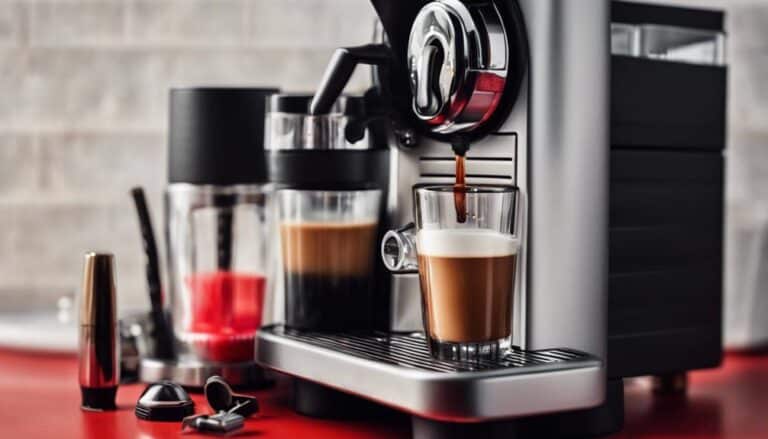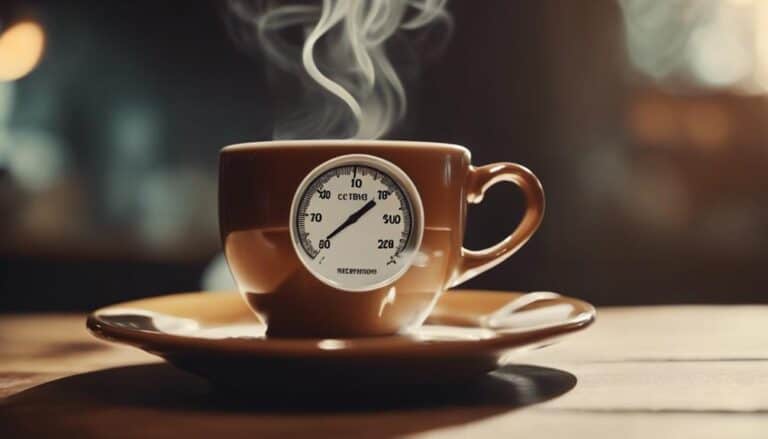Decoding the Sugar Content of Starbucks Matcha Powder
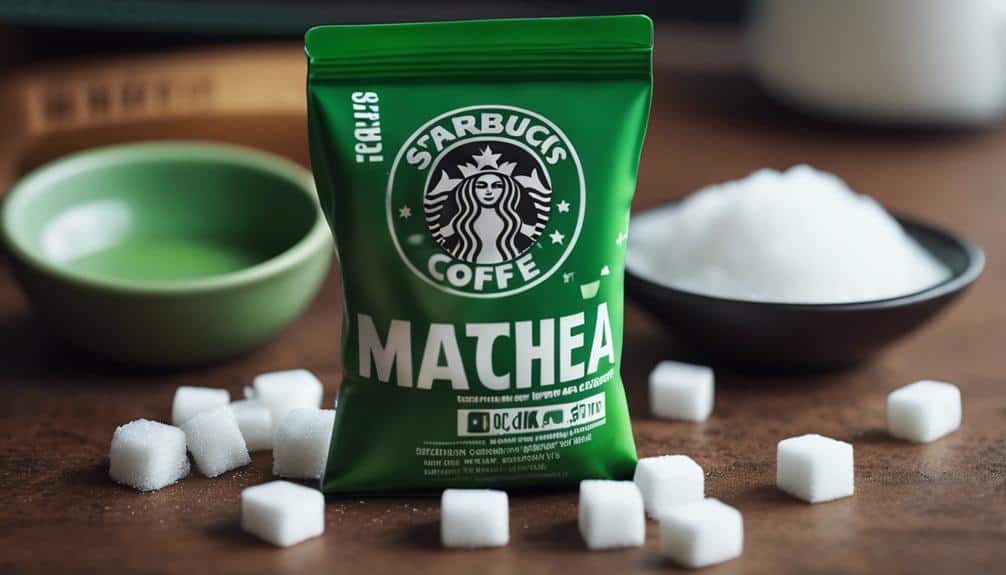
As I stirred my Starbucks Matcha latte this morning, I couldn't help but wonder about what exactly goes into that vibrant green powder. The taste was delightful, but there was something nagging at the back of my mind. A quick glance at the nutrition label left me questioning the true nature of the sweetness in my cup. Could there be more to this Matcha powder than meets the eye?
Hidden Sugar Content in Starbucks Matcha
Revealing the hidden sugar content in Starbucks Matcha exposes a concerning truth about the beverage's potential impact on one's sugar intake. Starbucks' matcha powder, a key ingredient in their Matcha lattes, contains a significant amount of added sugar, with reports indicating it can make up at least 51% of the powder's composition.
This high sugar content translates to a substantial sugar load in the final drink; for instance, a 16oz Matcha latte from Starbucks can harbor as much as 32g of sugar, primarily due to the sugar present in the matcha powder itself. Unlike some customizable options where sugar levels can be altered based on preference, the sugar in Starbucks matcha powder is fixed, which means customers are unaware of the exact sugar intake they're consuming.
This hidden sugar content in Starbucks matcha raises concerns about the overall health impact for individuals who consume these beverages regularly. Being mindful of the hidden sugar content in Starbucks matcha powder is important for making informed decisions regarding one's sugar consumption and overall well-being.
Impact of Sugar on Matcha Health Benefits
The high sugar content present in Starbucks Matcha powder can greatly diminish the authentic flavors and health benefits inherent to pure Matcha. Matcha, a type of green tea powder, is renowned for its rich antioxidant content and potential cancer-fighting properties. However, when consumed with added sugar as found in Starbucks Matcha powder, these health benefits can be overshadowed. Excessive sugar intake can lead to spikes in blood sugar levels, contributing to various health risks and potentially negating the positive effects of Matcha.
Furthermore, the first ingredient in Starbucks Matcha powder being sugar means that individuals who consume it regularly may unknowingly be exposing themselves to higher sugar levels than anticipated. This excess sugar not only masks the true essence of Matcha but can also lead to weight gain and other adverse health effects. Opting for Matcha without added sugar allows for a purer experience of its natural health-promoting properties, ensuring that the full potential benefits of this green tea powder are realized.
Unveiling Starbucks Matcha Powder Ingredients
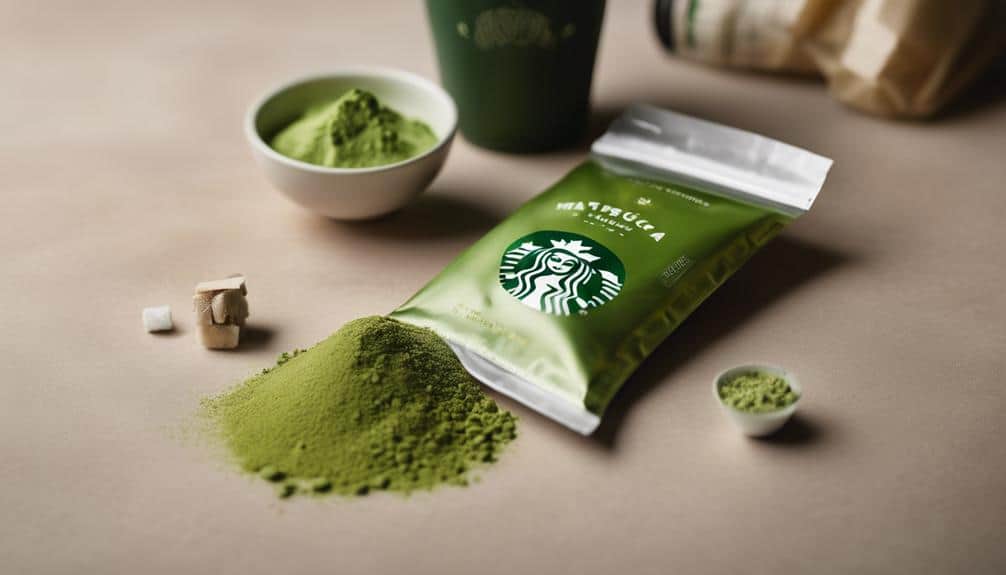
Upon examining the ingredients of Starbucks Matcha powder, one can uncover the presence of at least 51% added sugar, greatly impacting the overall composition of this popular green tea blend. The sugar content in a 16oz Starbucks Matcha latte reaches 32g, a substantial amount that contributes to the drink's sweetness.
Here are some key facts about the Starbucks Matcha powder ingredients:
- At least 51% added sugar: The high percentage of added sugar in Starbucks Matcha powder significantly alters the traditional bitterness of Matcha, making it more appealing to those with a sweeter palate.
- Economy-grade Matcha quality: Contrary to 100% pure Japanese Matcha, Starbucks uses a more economical grade of Matcha in their blend, which affects the overall taste and quality of the drink.
- Pre-mixed sugar content: Unlike some Matcha offerings where sugar can be added upon request, the sugar in Starbucks Matcha powder is pre-mixed, ensuring a consistent sweet flavor in every cup.
Understanding these ingredients sheds light on the unique qualities of Starbucks Matcha and how they differ from traditional Matcha preparations.
Analyzing Sugar Percentage in Starbucks Matcha
Analyzing the sugar percentage in Starbucks Matcha reveals a high content that may raise concerns for individuals monitoring their sugar intake. A 16oz serving of Starbucks matcha contains 28g of sugar, making it a beverage with a significant sugar load.
What's striking is that the sugar content in Starbucks matcha powder constitutes at least 51% of the product, indicating that a substantial portion of the powder is sugar. This high sugar content, inherent to the matcha powder itself and not added separately, can be alarming for those aiming to reduce their sugar consumption.
Understanding the sugar levels in Starbucks matcha is important for making informed choices about beverage selections. The significant sugar percentage in Starbucks matcha powder should prompt consumers to be mindful of their overall sugar intake and perhaps consider alternative options with lower sugar content.
Being aware of the sugar content empowers individuals to align their beverage choices with their health goals.
Health Implications of High Sugar Matcha
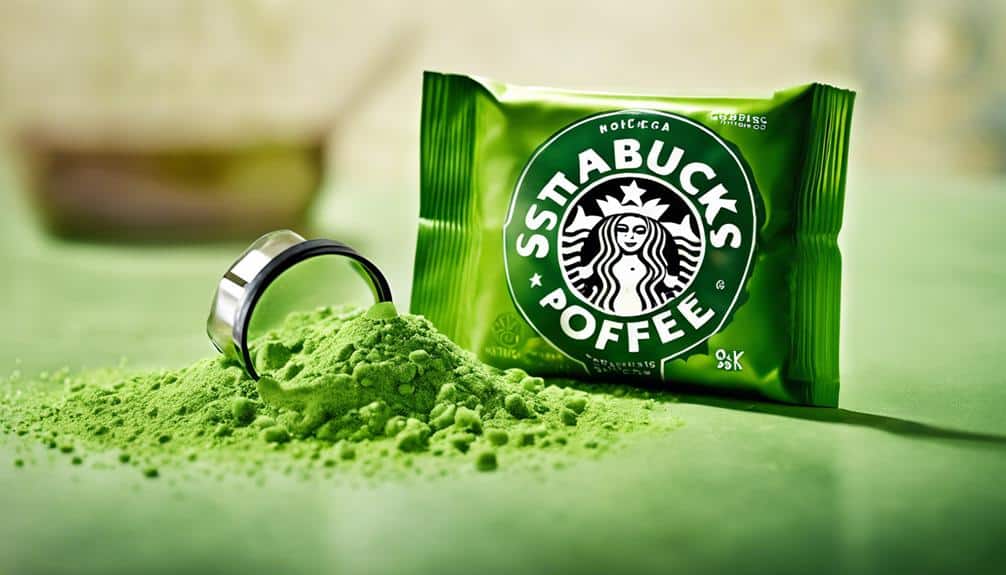
High sugar consumption from Matcha can pose significant risks to health, impacting weight management and increasing susceptibility to chronic illnesses. When considering the health implications of high sugar Matcha consumption, it's essential to be mindful of the following:
- Weight Management: The excess sugar in Matcha can contribute to weight gain as it adds empty calories without providing essential nutrients, potentially leading to obesity over time.
- Increased Risk of Chronic Diseases: Regularly consuming high sugar Matcha can elevate the risk of chronic conditions like type 2 diabetes and heart disease due to the negative effects of excessive sugar on overall health.
- Blood Sugar Fluctuations: Excessive sugar intake from Matcha can cause rapid spikes and drops in blood sugar levels, resulting in energy crashes and affecting mood and overall well-being.
Opting for lower sugar or sugar-free Matcha alternatives can be a healthier choice to mitigate the negative health impacts associated with high sugar consumption from this beloved green tea.
Conclusion
In summary, the hidden sugar content in Starbucks Matcha powder raises concerns about the health impact for regular consumers.
With reports indicating sugar can make up at least 51% of the powder, opting for lower sugar or sugar-free alternatives is essential to fully realize the health benefits of Matcha.
Understanding the ingredients and sugar percentage in Starbucks Matcha can help consumers make informed choices for their overall health and well-being.


